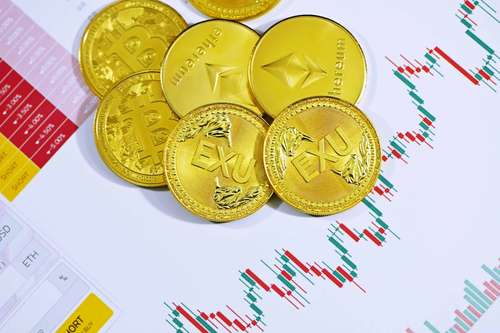Key Highlights
- Growing movement toward de-dollarization as countries seek alternatives to the U.S. dollar.
- Potential shift in global currency reliance could impact U.S. economic power.
- A decline in dollar dominance might reshape international trade and financial stability.
- Some countries, led by BRICS nations, are already working on dollar-free trade systems.
The U.S. dollar has long been the world’s dominant currency, a “reserve currency” used by countries globally to settle trade, store value, and conduct international transactions.
However, recent trends toward de-dollarization have raised questions about the dollar’s future as the primary global reserve currency.
Driven by geopolitical concerns and economic diversification efforts, many countries are exploring alternatives to the dollar. But what would happen if the dollar’s status as the world’s reserve currency were to decline?
De-Dollarization: What is it and Why Are Countries Moving Away from the Dollar?
De-dollarization refers to efforts by countries to reduce reliance on the U.S. dollar in international trade and finance.
Nations including China, Russia, Brazil, and India have begun to diversify their foreign exchange reserves and increase trade in their local currencies. The de-dollarization movement gained momentum in recent years, partly spurred by U.S. sanctions on countries like Russia and Iran.
These sanctions, which restrict access to the dollar-dominated global financial system, highlighted the potential risks of heavy reliance on the dollar.
Several countries, particularly those in the BRICS alliance (Brazil, Russia, India, China, and South Africa), are seeking more autonomy in their financial dealings. Russian President Vladimir Putin recently stated, “Nearly 95% of trade between Russia and China now takes place in rubles and yuan,” signaling a strong move toward currency diversification.
A single BRICS currency is even under discussion, though experts say this concept is still in its early stages. Nonetheless, de-dollarization is no longer a fringe idea – it has become a topic of global economic strategy.
The Risks and Implications of Losing Reserve Currency Status
A shift away from the U.S. dollar as the world’s reserve currency could have profound consequences for the United States.

The dollar’s global dominance currently gives the U.S. significant economic leverage, allowing it to influence international markets and maintain relatively low borrowing costs. However, if the world were to adopt a multi-currency system, the demand for dollars would decrease, potentially impacting the value of the dollar.
Claudio Irigoyen, an economist at Bank of America, warns that “If the U.S. moves to a policy that erodes debt through inflation, the market will start looking at alternatives to the dollar as a store of value.”
Such a scenario could undermine the dollar’s stability, leading to increased interest rates, inflation, and even currency devaluation.
A decline in the dollar’s reserve currency status would also affect U.S. geopolitical influence, as countries relying on other currencies would be less susceptible to American sanctions and economic policies.
What Are the Potential Alternatives to the U.S. Dollar As De-Dollarization Looms?
While there is no immediate replacement for the U.S. dollar, several currencies and financial instruments could play a larger role in a de-dollarized world.
The euro was once seen as a potential competitor, but Europe’s economic challenges and the 2008 financial crisis have limited its appeal. The Chinese yuan has gained ground in recent years, with China signing currency swap agreements to promote the yuan in cross-border trade.
However, China’s strict capital controls make it unlikely to become a true global reserve currency soon.
Additionally, central banks worldwide are diversifying their foreign exchange reserves by incorporating a broader range of currencies, including the Australian dollar, Canadian dollar, and even gold. Central bank reserves now include less dollar-dominated assets than in previous decades, showing a gradual, yet intentional shift away from dollar dependency.
Some economists also speculate that digital currencies, such as central bank digital currencies (CBDCs), could play a role in future global transactions, although this would require robust international cooperation.
How Will All of This Affect the U.S.?

The U.S. economy benefits significantly from the dollar’s role as a global reserve currency. This allows it to finance trade deficits and national debt more easily.
A shift away from the dollar could lead to increased volatility in exchange rates, impacting the competitiveness of U.S. exports. If countries increasingly favor alternative currencies, it could also trigger inflationary pressures domestically, as the U.S. would need to stabilize its currency without the same level of international demand.
Apart from that, the cost of borrowing would also likely increase if the dollar lost its reserve status. As demand for U.S. Treasury bonds decreases, interest rates would rise, making it more costly for the U.S. government to service its debt.
In addition to financial implications, geopolitical dynamics could shift as well.
Without the dollar’s dominance, the U.S. would lose a degree of influence in shaping global economic policies, potentially giving rise to a more multipolar economic landscape.
Economist Michael Landsberg of Landsberg Bennett Private Wealth Management advises U.S.-based investors to consider diversifying portfolios in response to potential de-dollarization. “Our message to investors is to diversify outside of the U.S. to benefit from stronger growth and a weakening dollar,” he stated.
With emerging markets like India and other regions in Asia showing economic growth, U.S. investors may increasingly look abroad as the global currency shift unfolds.
Final Note
While de-dollarization is still evolving, the movement reflects a desire among many nations for a more balanced and diverse global financial system.
Although an immediate end to the dollar’s dominance is unlikely, the shift toward alternatives is already impacting global economics.




